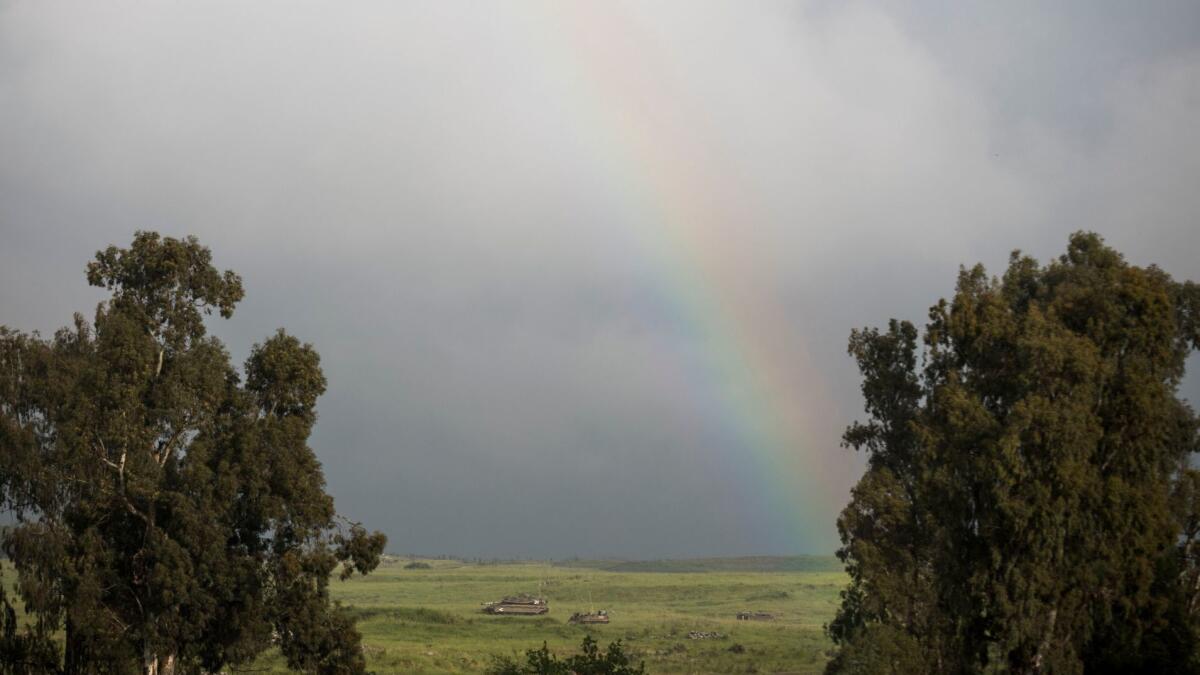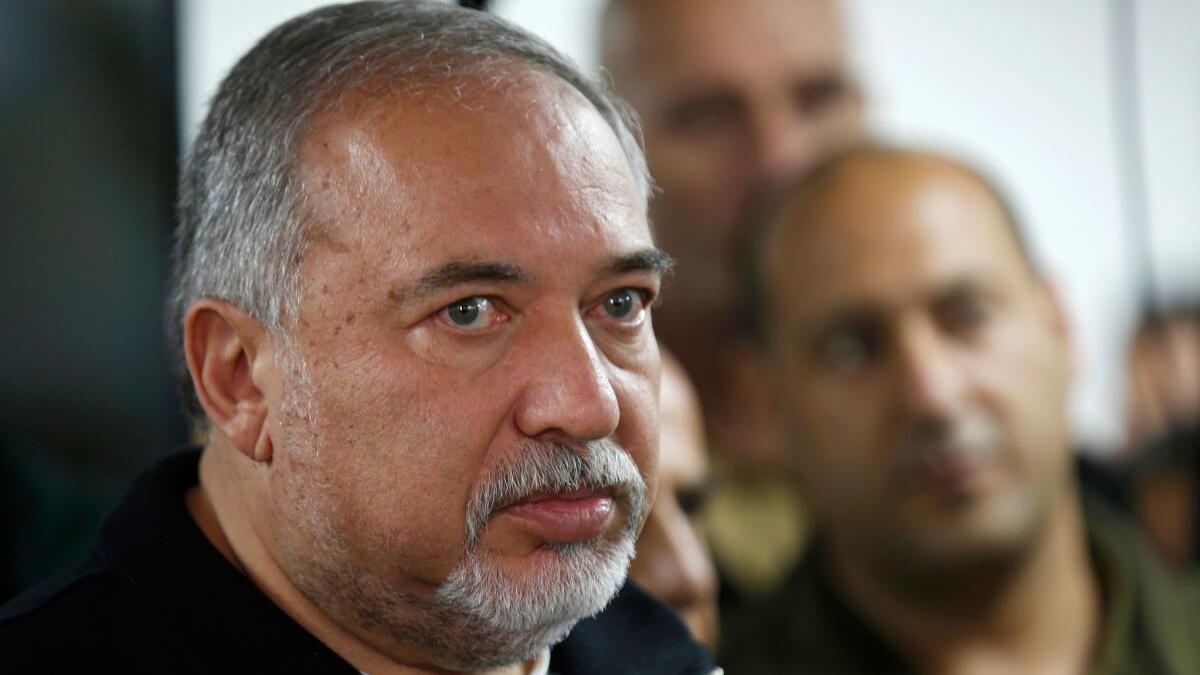Israel faces blowback from suspected role in Syria strike

Reporting from Jerusalem â Israel faced international blowback on Tuesday over the bombardment of Syriaâs largest air base, a center for the Iranian military effort to support Syrian President Bashar Assad. Although it has not acknowledged a role in the attack, Israel is widely believed to have carried it out.
Lebanon announced it would complain to the United Nations about the âIsraeli intrusionâ into its airspace. Russian Foreign Minister Sergei Lavrov described the strike as âa dangerous developmentâ in the Syrian civil war, now in its eighth year, and Israelâs ambassador to Russia, Gary Koren, was summoned to the Foreign Ministry in Moscow for a rebuke.
The bombing of the air base, known as T4, came the day after reports emerged from Syria of a suspected chemical weapon attack on civilians in Damascusâ rebel-held suburb of Duma. It was unclear whether there was any connection between the two events.
In Damascus, Ali Akbar Velayati, the diplomatic advisor to Iranâs supreme leader, Ayatollah Ali Khamenei, issued an open threat to Israel on Tuesday after the Iranian government said it had lost seven personnel in the strike.
Asked by the official Iranian news agency to address âcrimes committed by the Zionists against the Syrian forces and defenders of the holy shrines in the Al Tifour Airport,â an alternate name for the air base, Velayati said: âThe crimes will not remain unanswered. Victory is near.â
Both Russia and Syria have denied that the Assad government was behind the chemical attack â if it even occurred. The Russian Embassy in Israel condemned what it called the âhasty conclusion made in Israel in regard to the fake chemical attack in Duma.⌠The truth is that there is no evidence of any chemical attack in Duma at all.â
As is customary, Israeli officials refused to comment on the bombing. But on a visit to an emergency command center along Israelâs northern border with Syria, Defense Minister Avigdor Lieberman alluded to Israelâs concerns over Iranâs entrenchment in Syria and its fear that President Trump may order the withdrawal of U.S. troops from the country, as he has proposed.

Israel views Iran as its greatest enemy, and a nuclear-armed Iran as an existential threat.
âI donât know what happened there and who attacked,â Lieberman said of the Syrian strike. âI know one thing with certainty: We will not allow the Iranians to establish themselves in Syria, whatever the price may be. We have no other choice.â
Allowing Iran to remain in Syria, he said, was akin to âagreeing to the Iranians placing a noose around our necks. We will not allow it.â
Eliot Higgins, the founder of the investigative reporting site Bellingcat, said in an interview that, in addition to a strictly military purpose, bombing T4 may serve as an Israeli signal to a wavering Trump that it is possible to respond militarily against Russia and Syria in the Syrian arena.
This, he says, is what drew Russian ire. âRussia clearly sees it as a threat,â he said.
Trump has said he will make a âmajor decisionâ in the next day about how to react to the suspected chemical attack. The White House has not commented specifically about the apparent Israeli airstrike. In Israel, there is concern that the countryâs traditional allies are not speaking out in support of its position.
Interviewed on Israelâs Army Radio, Justice Minister Ayelet Shaked alluded to Israelâs growing realization that the rest of the world may not share its uncompromising stance regarding Iranian entrenchment along its northern border.
âI hope the international community will join our efforts not to allow Iran a permanent presence on our border,â she said, âbut if the international community does not, weâll act to prevent this on our own.â
Alex Grinberg, an expert in Tel Aviv on the Mideast, Russia and Iran at the Middle East Center for Reporting and Analysis, said Israelâs alarm at the situation in Syria is roughly equivalent to its outrage over the nuclear deal President Obama signed with Iran, over strenuous objections from Israeli Prime Minister Benjamin Netanyahu.
âEven if Trump retaliates with great force â not contenting himself with a symbolic missile salvo at empty buildings â it wonât change the balance between the [Islamic Revolutionary Guard Corps] and other Iran-affiliated forces with Israel,â he said.
If Trump withdraws U.S. troops from Syria, he added, it will be âa real gainâ for Assad, Russian President Vladimir Putin and Iranâs Khamenei.
ALSO
What if your favorite app got banned? Thatâs becoming a reality for millions in Iran
In an abrupt turnaround, Netanyahu cancels deal to resettle African migrants in Israel. Now what?
Saudi crown prince says Israelis, Palestinians both have âright to have their own landâ
Tarnopolsky is a special correspondent. Special correspondent Ramin Mostaghim in Tehran contributed to this report.
More to Read
Sign up for Essential California
The most important California stories and recommendations in your inbox every morning.
You may occasionally receive promotional content from the Los Angeles Times.









